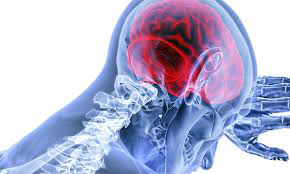Skull Base Neurosurgery Program of Excellence

Introduction
Skull base surgery is a highly specialized, minimally invasive surgical technique for evaluating, diagnosing and treating benign or cancerous growths located on the underside of the brain, the base of the skull and the upper vertebrae of the spinal column.
These are some of the growths and conditions that may be treated by skull base surgery:
- Cysts that develop from birth
- Growths caused by infections
- Pituitary tumors
- Meningiomas, noncancerous tumors that grow from the meninges, the tissue that covers the brain and lies between the brain and skull
- Chordomas, a slow-growing bone tumor most often found at the base of the skull
- Trigeminal neuralgia, an intense pain on one side of the face
- Craniopharyngiomas, growths that occur near the pituitary gland
- Craniosynostosis, a condition in which the bones of the skull of an infant close too early, causing problems with brain growth and the shape of the skull
- Cerebrospinal fluid fistulas
- Cerebral aneurysm, a weak, often bulging area in a blood vessel in the brain
- Arteriovenous malformations, arteries and veins that are abnormally connected to one another
Types of skull base surgery
Skull base surgery can be done in two main ways. Although the preferred method is endoscopic, open surgery is also an option, depending on the type of growth that needs to be removed and its location:
- Endoscopic or minimally-invasive skull base surgery. This type of surgery usually does not require a large incision. A surgeon may make a small opening inside the nose to allow a neurosurgeon to remove a growth through a thin lighted tube called an endoscope. An MRI is a type of picture taken of the skull base using magnets and a computer and may be done by a radiology specialist while the surgical specialists are operating to help them make sure all of the growth has been removed.
- Traditional or open skull base surgery. This type of surgery may require incisions in the facial area and in the skull. Parts of bone may need to be removed so that the growth can be reached and removed. An operating room microscope is often used for this type of surgery.
Treatment
In addition to endoscopic and open skull base surgery, these treatments may be needed, depending on the type of growth or abnormality of the skull base:
- Chemotherapy. These are drugs used to treat growths caused by cancer.
- Radiation therapy. X-ray treatment may be used to control a growth in the skull base that can't be completely removed by surgery.
- Gamma knife. This is a special type of radiation therapy that uses precise X-ray beams to target a growth in the skull base.
- Proton beam therapy. This is another type of radiation therapy designed to have greater accuracy and dosing for tumors.
- Particle therapy. This is the newest form of radiotherapy. It uses high energy particles with fewer side effects. Carbon-ion radiotherapy is a form of particle therapy.
About the Program
Dr. Samy Youssef MD, PhD, Director of the University of Colorado Skull Base Surgery program, is board certified and fellowship trained with a national/international reputation in the treatment of complex brain tumor and vascular surgery. 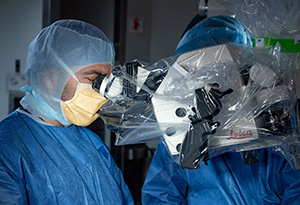 The University of Colorado Hospital Skull Base Program provides advanced, comprehensive care in the Rocky Mountain region for patients with complex skull base tumors, cerebral aneurysms, meningiomas, acoustic neuromas, pituitary tumors, trigeminal neuralgia, and head and neck cancer. The care for such challenging lesions is founded on close multidisciplinary care.
The University of Colorado Hospital Skull Base Program provides advanced, comprehensive care in the Rocky Mountain region for patients with complex skull base tumors, cerebral aneurysms, meningiomas, acoustic neuromas, pituitary tumors, trigeminal neuralgia, and head and neck cancer. The care for such challenging lesions is founded on close multidisciplinary care.
Our skull base team consists of collaborative, multidisciplinary providers including neurosurgeons, otolaryngologists, head and neck surgeons, oculoplastic surgeons, oncologists, radiation oncologists, neuropsychologists, and neuropathologists. Our team-based approach has lead the University of Colorado to treat more patients with brain tumors than any other hospital in the region.
Our skull base team provides patients with the safest and most effective surgery by combining our expertise with the latest technological advancements in endoscopic cranial procedures, fluorescein-guided tumor resection, image-guided tumor resection, intraoperative MRI, and minimally invasive tumor surgery.
Dr. Youssef was recently featured for treating cerebrospinal fluid cysts of thalamic origin using state-of-the-art
endoscopic cranial procedures.
Leadership
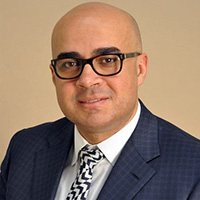
A. Samy Youssef, M.D., Ph.D.
Director of Skull Base Surgery
Professor of Neurosurgery & Otolaryngology
University of Colorado School of Medicine
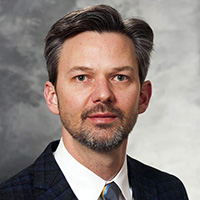
Samuel Gubbels, M.D.
Co-Director of Skull Base Surgery
Associate Professor of Otolaryngology
University of Colorado School of Medicine
Multidisciplinary Team Members
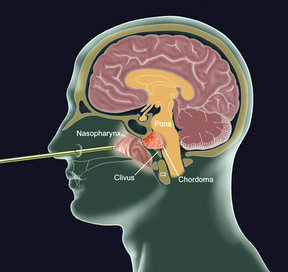 Neurosurgery:
Neurosurgery:
A. Samy Youssef, M.D., Ph.D
Kevin Lillehei, M.D.
D. Ryan Ormond, M.D.
Otolaryngology:
Vijay Ramakrishnan, M.D.
Stephen Cass, M.D.
Todd Kingdom, M.D.
Anne Getz, M.D.
Samuel Gubbels, M.D.
John Song, M.D.
Ocuolplastic Surgery:
Eric Hink, M.D.
Sophie Liao, M.D.
Neuropathology:
Bette K. DeMasters, M.D.
Brian Moore, MD, MEd
Neuro-oncology:
Denise Damek, M.D.
Douglas Ney, M.D.
Radiation Oncology:
Brian Kavanagh, M.D.
Sana Karam, M.D.
Arthur Liu, M.D.
Neuroradiology:
Jody Tanabe, M.D.
Tom Borges, M.D.
Justin Honce, M.D.
Lidia Nagae, M.D.
Eric Nyberg, M.D.
To make an appointment
call 720.848.2080
call 720.848.2080
